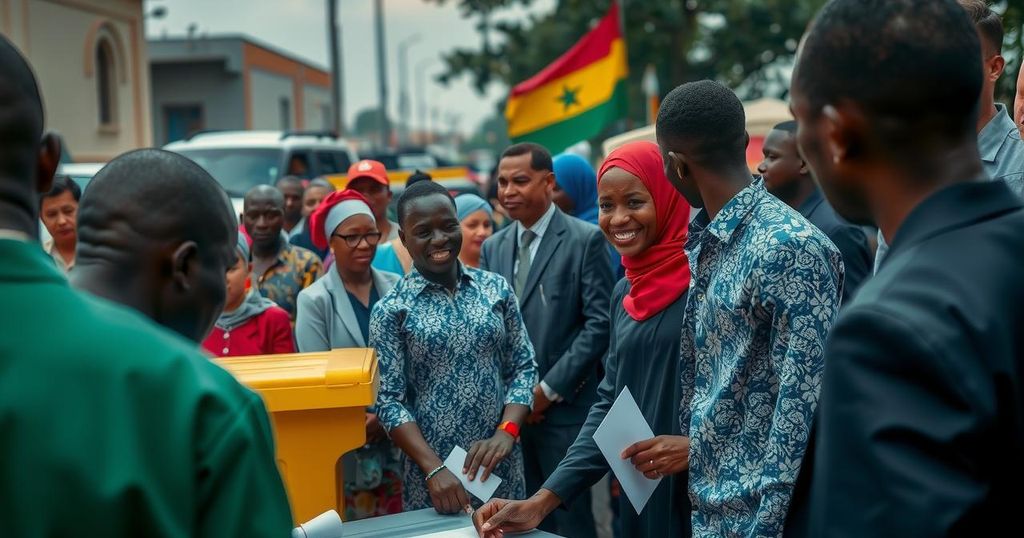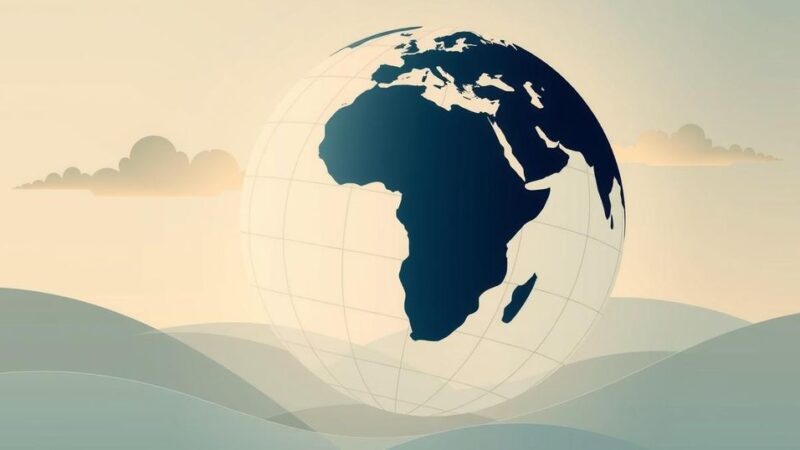Ghanaians will vote on Saturday to select a new president, with Vice President Mahamudu Bawumia and former President John Mahama as leading candidates. The election occurs amid severe economic distress, high inflation, and rising unemployment, creating a catalyst for voter dissatisfaction. Citizens hope for governance that ensures accountability and effective economic management while the country prepares to uphold its democratic traditions in the election process.
On Saturday, Ghana will conduct high-stakes presidential elections amid significant economic challenges. Twelve candidates are competing, with currents polling reflecting a tight race between current Vice President Mahamudu Bawumia from the ruling New Patriotic Party (NPP) and former President John Mahama from the opposition National Democratic Congress (NDC). The electorate is especially concerned about the economy, high inflation rates, and unemployment, which have led to widespread discontent among the populace. The elections come at a critical juncture as voters grapple with the highest inflation rates in over 20 years, economic mismanagement, and the ramifications of the COVID-19 pandemic.
The socio-economic backdrop against which these elections are unfolding is troubling. Ghana is experiencing its worst economic crisis in decades, with a staggering inflation rate hitting 54.1% in December 2022, exacerbated by high unemployment and significant increases in living costs. Over 1.3 million young individuals remain unemployed, as illegal gold mining activities add to environmental degradation, further destabilizing communities. According to the World Bank, rising poverty levels since 2020 have pushed more citizens into precarious circumstances, underscoring the urgency for change in governance to better address these systemic issues.
As the electoral campaigns progress, both candidates are positioning themselves to win over voters. Beyond Bawumia’s reliance on his economic credentials, he has faced criticism regarding his handling of financial policy amidst rampant inflation. Meanwhile, Mahama has positioned his campaign on promises of good governance and accountability, stressing his administration’s achievements in reducing unemployment and enhancing press freedom. Voter interest in a transformative government remains high amid anxious discussions surrounding the future economic direction of the nation.
With more than half of Ghana’s population registered to vote, stakeholders are eager for a peaceful election process. Crucially, to secure the presidency, a candidate must obtain over 50% of the vote; a potential run-off could occur if results do not meet this threshold. The prevailing sentiment, voiced by political analysts, suggests optimism for a smooth transition of power, reinforcing Ghana’s robust democratic framework.
Ghana is at a pivotal moment as it holds presidential elections against a backdrop of economic turmoil. The country is grappling with its highest inflation rates in decades, rising poverty levels, and widespread youth unemployment, largely exacerbated by illegal mining activities and the economic fallout from the COVID-19 pandemic. As the current president approaches term limits, the elections present an opportunity for significant political change. Voters are particularly concerned about economic management and the candidates’ ability to stabilize the nation’s financial landscape. The stakes are high, as a tight race looms between the ruling and opposition parties, both vying to address these pressing issues and restore public confidence in governance.
In conclusion, Ghanaians are poised for a significant presidential election that may redefine the country’s future amid troubling economic conditions. With heightened inflation and unemployment driving voter sentiment, both Mahamudu Bawumia and John Mahama strive to present viable solutions to pressing challenges. The election not only represents a choice for political leadership but also reflects the broader desire for a government capable of delivering sustainable development and economic stability. The hopes for a peaceful, democratic process remain strong as citizens anticipate the forthcoming vote.
Original Source: www.cnn.com






